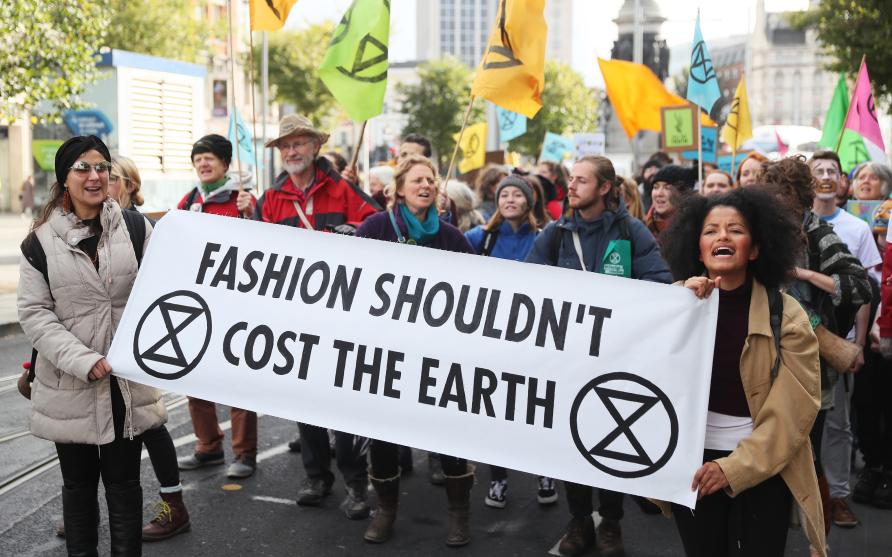Greenwashing in the Fashion Industry
February 12, 2021
Fashion has taken a sudden turn in the past decade. Zara, once praised for its speed from the runway to stores, now receives extreme backlash. Fast fashion seems to be an unprecedented problem, but while some companies face it head-on, others find deceitful ways around it.
Greenwashing is defined as the process of showcasing misleading information and false impressions to market a product or service. In the search to live a more sustainable lifestyle, it has become increasingly difficult to differentiate between what products are sustainable and what products are greenwashed. On top of all of this, the fashion industry does not have legal terms for ‘sustainable,’ ‘all-natural,’ ‘green,’ or ‘eco-friendly.’ This causes an influx of misled consumers playing into the schemes of large, fast-fashion corporations.
Let’s visit H&M as an example. H&M is notorious for its fast fashion involvement. Many items sold at the store are wrongly marketed as ‘100% organic’ or ‘all-natural.’ As mentioned before, there are no legal definitions defining these terms. Almost all of their organic garments under their “Conscious” clothing line actually use up to 20,000 liters (5,283 gallons) of water for each garment. The used water, filled with pesticides and dyes, ends up in runoff and contributes to water pollution.
It is unacceptable that companies can get away with this and consumers need to be aware of their actions. Although it is hard to find clothing that isn’t greenwashed, the best way around it is to wear your current clothes as much as possible until they wear out before buying anything new. Reduction of consumption is the number one way around all fashion industry problems.
If you are an avid consumer and like to keep up with trending pieces, I recommend buying second-hand because, since the clothing is already in circulation, it reduces direct consumption and you avoid supporting companies involved in greenwashing and the fast fashion industry. My personal favorite second-hand stores are Buffalo Exchange, L Train Vintage, and online resources like Depop. If you have the means to, you can buy from sustainable brands as well. Some of these include Lucy and Yak, Reformation, Veja, and many more. If you are unsure if a company is greenwashing or simply just helping the environment, a popular app called “Good On You” is a helpful resource that lists and rates thousands of brands based on their stances on labor, environmental impact, and animals.
Although it may be easier and less expensive for companies to lie, the future looks bright. Companies needing to even lie in the first place means that more consumers are looking for sustainable alternatives. It is just a matter of time until companies hop on the bandwagon and move past the need for greenwashing.
















































































































































